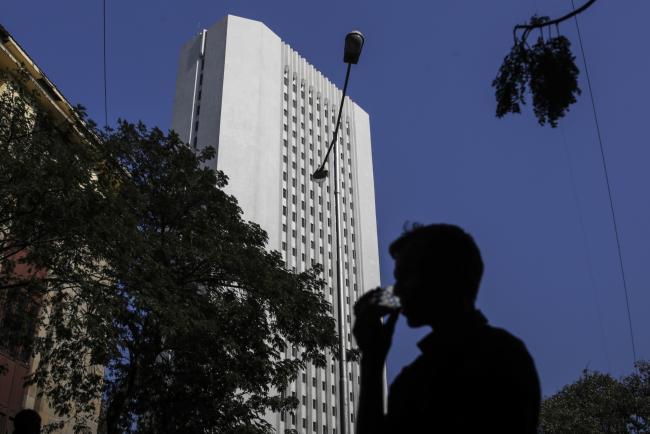(Bloomberg) -- India’s monetary policy makers and government officials will meet Monday in a board meeting that promises to be anything but its usual dull affair.
Locked in a power struggle over how much capital the central bank needs and how tough its lending rules should be, a trained accountant parachuted into the Reserve Bank of India’s board by the government in August may be key to whether a compromise can be found or whether the already public spat turns even uglier.
Swaminathan Gurumurthy, a chartered accountant turned newspaper columnist, has set the tempo by chiding the monetary authority for being too tough in its efforts to rid banks of bad debts and arguing the case for lower reserves -- a step that would give the government more cash ahead of an election year.
The central bank -- led by Governor Urjit Patel -- has pushed back against the moves, keen to burnish its inflation-targeting credentials and clean up one of the world’s worst bad-debt piles. Patel’s deputy took the spat public in late October in a fiery speech in defense of central bank independence.
For a nation that relies on imported capital to fund investment, failure to reach middle ground threatens to erode investor confidence in the world’s fastest-growing major economy. Those elevated stakes are making Monday’s meeting in Mumbai a must watch affair for India market watchers.
Gurumurthy, who is associated with the economic wing of Rashtriya Swayamsevak Sangh -- the ideological parent of Modi’s Bharatiya Janata Party -- and is a champion of small-traders who are BJP’s key voting bloc, was chosen by the government to push easier access to credit for micro and medium-sized enterprises. Lending to the sector has suffered after the RBI tightened norms for state-run banks saddled with bad debts.
The central bank, which is also the banking regulator, may be open to easing tight money conditions in the banking sector by injecting cash through open market purchases of bonds. But it’s unlikely to part with its reserves as some of these are notional, and may resist relaxing capital buffers for banks.
The government can still have its way with the RBI by invoking a rule that hasn’t been used in the central bank’s 83-year history. The finance ministry last month sought Patel’s views on the issues of contention by citing Section 7 (1) of the Reserve Bank of India Act.
The RBI’s board is only meant to advice and guide and not decide on policy issues, people familiar with the matter said. But Gurumurthy and the government nominees Subhash Chandra Garg and Rajiv Kumar have been vocal about bank supervision, flow of credit to industry and easier financial conditions for India to overcome a crisis in its shadow banking sector.
An activist board has not been taken too kindly by the RBI. While the first clause of Section 7 confers powers to the government to give directions, the third part indicates that the governor shares power with the board, the people said, adding that the powers of the governor are reiterated in another section of the RBI Act.
The government is separately seeking more powers to supervise the central bank, a departure from the board’s current role as an advisory body, people with knowledge of the matter said.
“Having Gurumurthy on RBI board has complicated the situation,” said Mohan Guruswamy, a former finance ministry official and chairman of the Centre for Policy Alternatives in New Delhi, who has know Gurumurthy for years. “He wants banks to give money to non-bank finance companies, which are already in a mess. He’s an RBI director. It’s not his grandfather’s money.”
